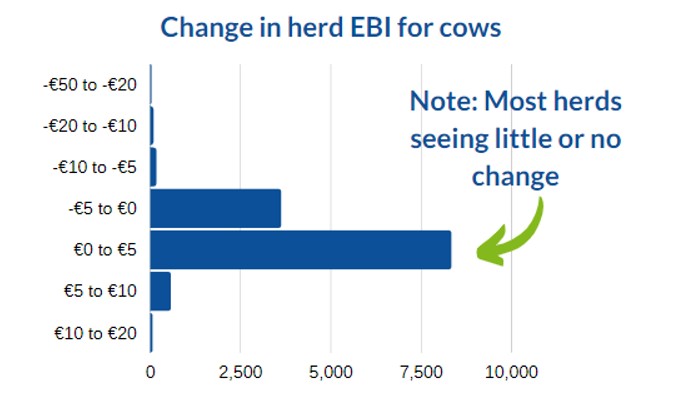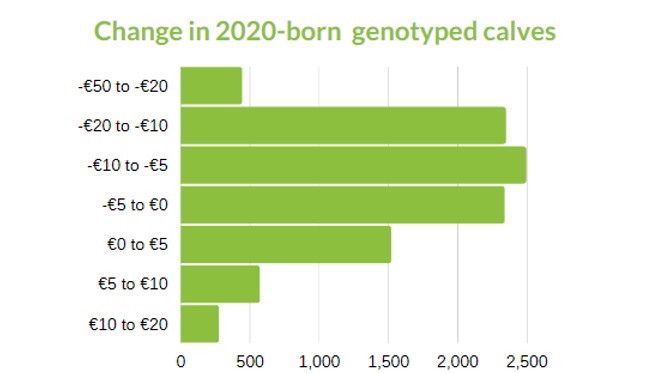The Irish Cattle Breeding Federation (ICBF) has implemented a change in how genomics is blended with parental average to calculate Economic Breeding Index (EBI) in the October 2020 evaluation.
While the use of genomic data allows for the identification of superior animals more accurately for the national breeding programme, there are also challenges, the federation says.
Most notably, the ICBF notes that increasingly the percentage of sires with actual progeny data in the training population is declining.
The use of genomics has reduced the generational interval in the national herd, from an average of 10 years between a calf and its sire in 2008, to just five years currently.
Genomic prediction bias is a common challenge globally and one solution is to cap the genomic component of the traits affected by any bias, the ICBF says.
- Milk traits: Capped at 70%;
- Fertility traits: Capped at 50%;
- Health traits: Capped at 90%.
ICBF CEO Sean Coughlan explained: “Dairy farmers on the ground know that EBI and genomics have delivered, on average, 4c/L in additional profit.
“We continue to evolve with this rapidly changing technology to ensure that positive trend continues. Sometimes that requires decisions that cause change.”
Most herds will see little or not change in their herd EBI. Herds that will see the most change are those with a high level of herd genotyping.
The changes on cow EBIs will be minimal with the majority of herds seeing a change in the region of €0 to €5 on overall cow EBI.
The biggest change will be seen on the 2020-born genotyped calves. Similarly, young bulls on the active bull list will see a change of, on average €20-€30.
Continuing, Coughlan said: “The reality is that the vast majority of farmers are using genomic bulls – some farmers are using bulls that are daughter proven for milk, but that are still based on genomic evaluations for fertility.
“All farmers have made progress. The critical risk mitigation factor in the current era is to ensure that teams of bulls are using during the breeding season.
“Farmers have embraced this and…the majority of farmers are not hugely impacted at the herd level, in terms of their cow EBIs.”
The cap placed upon traits will be reviewed annually to ensure more accurate predictions going forward, the ICBF says.


